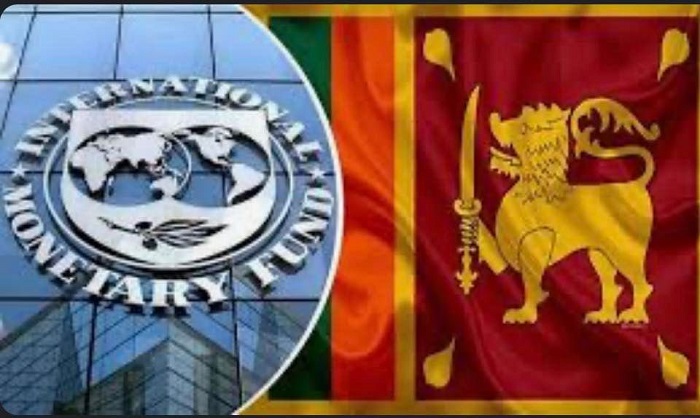
There is a strong expectation that agreements with Sri Lanka’s external commercial creditors consistent with the International Monetary Fund (IMF) program parameters will be reached soon, IMF Spokesperson Julie Kozack said on Thursday.
Addressing a special press briefing, the Director of the IMF’s Communications Department said overall the IMF assesses that there has been sufficiently strong progress on the debt restructuring front.
Providing further details, Julie Kozack said more specifically, the authorities have been holding extensive discussions with external official creditors regarding an MOU with the official creditor committee and the final agreements with the Export-Import Bank of China.
“Discussions with external bondholders continue with the aim of reaching agreements in principle soon. Negotiations with the China Development Bank are also at an advanced stage,” she revealed.
The IMF representative went on to note that in Sri Lanka, the IMF sees macroeconomic policy reform starting to bear fruit, with commendable outcomes such as rapid disinflation, robust reserve accumulation, and initial signs of economic growth, while preserving the stability of the financial system.
“Program performance is strong with most quantitative and structural conditionality for the second review met or implemented with delay, and reforms are still ongoing in some areas,” she said.
Outlining future measures, Julie Kozack said the next steps on the debt restructuring are indeed to conclude negotiations with external commercial creditors and to implement agreements in principle with the official creditors.
“The domestic debt operations are largely completed. Debt restructuring discussions are continuing,” she added.
Julie Kozack confirmed that the IMF Executive Board will meet on June 12 to discuss the second review and the Article IV Consultation related to Sri Lanka.
Transcript of the IMF representative Julie Kozack’s statement on Sri Lanka:
QUESTIONER: Thank you, Julie, for taking my question. My question is, the IMF Executive Board is expected to take up Sri Lanka’s review sometime next week. And I just wanted to know, have creditors given any influences with regard to reaching the agreements on debt restructuring through the IMF? And is the IMF expressing any concern why it’s taking so long for both the bilateral creditors as well as the private creditors to reach agreements and also convert already reached principal agreements into actual MOUs.
KOZACK: Thank you so much. Any other questions on Sri Lanka?
QUESTIONER: Yes, thank you. Julie, I wanted to ask about the Board meeting, if the IMF setting the date for June 12th to take up the review of Sri Lanka means the authorities have reached a debt deal with the bondholders and bilateral creditors, or has the IMF separately, or is it a reflection of the IMF reducing the exact stipulations for Board approval? The prior stipulation had been that the MOU be signed with official creditors and the pact reached with bondholders. And so has there been a change based on the progress that Sri Lanka has made so far to pass the latest round of the latest review?
KOZACK: Thanks.
QUESTIONER: Hi. Also, just following up on the debt restructuring question in terms of just what needs to happen there to make that go forward and, you know, the IMF’s view on its support for that restructuring. Thanks.
KOZACK: Okay, anyone else on Sri Lanka? Okay, so stepping back, on March 21st, IMF staff and the Sri Lankan authorities reached staff-level agreement on economic policies to conclude the second review of the program and also the 2024 Article IV Consultation. As noted, on June 12th, the Executive Board will meet to discuss the second review and the Article IV Consultation.
In Sri Lanka, we do see macroeconomic policy reform starting to bear fruit. Commendable outcomes include rapid disinflation, robust reserve accumulation, and initial signs of economic growth, while preserving stability of the financial system. Program performance is strong with most quantitative and structural conditionality for the second review met or implemented with delay, and reforms are still ongoing in some areas. The next steps on the debt restructuring are indeed to conclude negotiations with external commercial creditors and to implement agreements in principle with the official creditors. The domestic debt operations are largely completed. Debt restructuring discussions are continuing.
More specifically, the authorities have been holding extensive discussions with external official creditors regarding an MOU with the official creditor committee and the final agreements with the Export-Import Bank of China. Discussions with external bondholders continue with the aim of reaching agreements in principle soon. Negotiations with the China Development Bank are also at an advanced stage. There is a strong expectation that agreements with external commercial creditors consistent with program parameters will be reached soon. So overall we assess that there has been sufficiently strong progress on the debt restructuring front. (Newswire)
